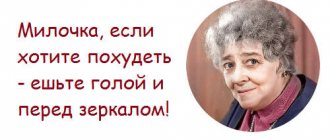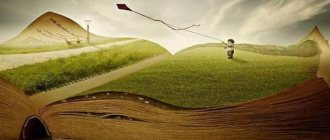Problem of choice
Whether we want it or not, our very existence is derived from free choice. It can be conscious - when, when making decisions, we try to assess their consequences in advance. In this case, the process can be not only lengthy, but sometimes painful. So also unconsciously - spontaneous, instantaneous, imperceptible to us.
Our life is a continuous cycle of the following events: setting a problem - choosing a way to solve it - implementation. In general, it looks like this.
Unconscious activity:
- Spontaneous, without apparent reason, formation of intentions and desires.
- Uncontrolled, unconscious choice.
- The action will be performed automatically.
- The result, unless there are catastrophic consequences, does not matter much.
Conscious activity:
- As a rule, we understand the reason for the appearance of intention.
- When making a decision, we realize what we want to get in the end.
- We plan and control the sequence of actions.
- We compare the results obtained with our expectations.
- We determine its significance.
In general, everything that concerns ensuring the physical existence of the body can be classified as unconscious activity. Starting with breathing. Including the simplest, familiar manipulations, brought to the point of automaticity by frequent use. When, as they say, the hands remember the work, and the legs remember the road.
Conscious activity is necessary when behavioral patterns have not been formed, when we create something new or interact with complex objects with unpredictable reactions.
In the context of the topic under consideration, it is important for us to understand that every second we make decisions that create our life in all its aspects. Including our bodies and personalities. This is a continuous interconnected single process of creating reality. To breathe or not? Open your eyes, admire the endless diversity of the world, show your will and change it. Or close your eyes tightly and declare: “if I don’t see or understand something, then it doesn’t exist.” To live or die is just a matter of choice.
By generating intentions, making decisions and implementing them, we shape ourselves and the world around us, create our own destiny and participate in creating the lives of other people. At the same time, the initial, absolute freedom of choice, inherent in us as the embodiment of the Creator in the physical world, is realized through the filter of accumulated life experience. Beliefs that have become our truth predetermine the emergence of certain desires and the choice of ways to realize them. They are the ones who program our destiny and create the illusion of its destiny.
On the other hand, ideas about the unpredictability of what happens to us are a consequence of unconscious choice and fragmentation of our worldview. These factors destroy a single interdependent sequence of events. They split the whole picture of the world into unrelated parts.
Let us examine in detail how the illusion of the absence of a cause-and-effect relationship is created between the choices we continuously make and the formation of our destiny.
Causes and consequences of unpredictability of fate
First, let's consider one of the most important and at the same time the simplest reason that creates the feeling of our innocence in what is happening to us.
We have already mentioned it - this is an unconscious activity. What we do without thinking is not automatically recorded in our long-term memory. Usually this is a familiar sequence of actions that does not require the participation of our consciousness. With a certain generalized result, the importance of which, as a rule, is not very significant for us.
Examples of unconscious behavior include breathing or walking. The control and signaling nervous system, regardless of consciousness, evaluates our state, makes a decision and implements it.
We have already said in previous texts that the body is a semi-autonomous shell of the soul, which is capable of existing independently to a certain extent. Moreover, it is better for consciousness not to interfere in this activity. This can lead to imbalance in the body. There are too many factors to consider. The soul has other functions and capabilities. We will look at them in more detail later.
Now let’s just note that it is natural and necessary for a person to have an unconscious existence, which is not capable of noticing, controlling and taking into account his consciousness. That is, we simply do not see or remember quite a large part of our lives.
Now let's look at the reasons for the unpredictability of a significant part of conscious activity. To explain why we don’t notice something, we have to remind ourselves of how our worldview works. Previously, we have already examined this issue in detail, now let’s try to look at it from a slightly different angle.
In the context of the given topic, we will figure out how we see not the surrounding reality, but our life itself. Let me remind you that by the term “life” we mean the time of existence of an individual person, saturated with certain events and his personal experiences.
On the one hand, a person’s life is continuous and consists of a huge number of consecutive conscious intentions, decisions and actions. And conscious activity implies its fixation by long-term memory. And theoretically, we can restore any event that happened to us, simply mentally returning to the past step by step.
Unfortunately this is not entirely true. Memory is a reflection of our picture of the world. It is just as fragmented and fragmented. We can remember either logically interconnected episodes close in time, or vividly emotionally experienced ones.
It is very easy to verify this. Let's try to reproduce yesterday as a continuous sequence of events. It's like watching a movie about ourselves. What we saw, felt, what we thought, how we reacted to certain incidents, and what experiences we experienced. At best, we will be able to remember a few vivid episodes, emotions or thoughts. But even these memories will be superimposed by the current state and distort the initial perception of certain situations. In addition, the assessment of the importance of what happened to us always changes over time.
Another example of the selectivity of worldview is our ability to lose orientation in unfamiliar areas or where there are no landmarks that are easy to see and remember. For example, in the forest. Where the surrounding reality narrows to several tens of meters.
In order to get lost, we will have to make a huge number of decisions and perform a corresponding number of various actions. Moreover, they are all the result of our free choice, which we make without noticing it or remembering it. If this were not so, we could always reproduce the reverse sequence of our steps and return to the starting point in our footsteps.
Unlike the image of reality in the form of a mosaic, we perceive our life more like a garland with light bulbs of different brightness and color. A chain of sequential, pleasant or unpleasant, events of varying degrees of emotional intensity. And between them there is emptiness. Memory losses. Moreover, the brighter the emotions experienced, the more incomprehensible and darker the interval between them.
Selectivity of memory destroys the continuous interconnection of both individual episodes of life with each other, and decisions made with the result obtained. Therefore, we cannot always track the cause-and-effect relationships between the choice we make and our destiny. This creates the illusion of its unpredictability. If we do not understand the logic of the processes that we ourselves initiate and in which we directly participate, our life loses meaning and turns into uncontrollable chaos.
Fortunately, there are factors that allow us to talk about a certain predetermination of what is happening to us. But they can either improve the situation or make it worse. Let's look at them.










